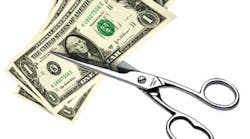Troubleshooter: Is it legal to make dental hygienists clock out for no-shows?
QUESTION: I’m struggling with this issue, and I need to know my rights. The hygienists who work in our office have followed the clock in/out system for many years. Suddenly the new management tells us that when we get cancellations and no-shows in the middle of the day, if the affected hygienist decides to stay and help around but doesn’t produce, she will be paid clerical fees. Or she can choose to leave the office to go to her car, run errands, etc., and then come back for her next patient in the same day. Is this legal? I know many offices might do this, but what is the labor law in this regard?
ANSWER FROM REBECCA BOARTFIELD: Find a thorough explanation can be found in a Dental Economics article, "Caution: Think before you make your employees clock out," from HR experts Rebecca Boartfield and Tim Twigg, who are with Bent Ericksen Associates.
ANSWER FROM HALISI TAMBUZI, JD, CEDR Solutions: Your question has a couple of moving parts. Hygienists are usually nonexempt employees, therefore, they must be paid for all hours worked. Even if hygienists are not with patients, if they are working then they must be on the clock. Waiting for the next patient to arrive could be considered work if a hygienist is being asked to be on-call for phones or walk-in patients, or if he or she is not permitted to leave the premises.
State law defines when an employee is considered to be working, and whether an employer is allowed to have employees clock out for certain periods of the day. If state law permits, and there is a long period of time between patients, an employer can ask employees to clock out if they are permitted to leave the office and attend to personal errands. Note however, based on federal law, an employer cannot have employees clock out unless their break is at least 20 minutes.
If employees are performing work other than patient care and the work is entirely distinct from their hygiene job duties, then they can be paid a different rate of pay If they are informed of the rate of pay in advance, and if the type of work they will perform for each rate of pay is specifically defined. This is not always well received by hygienists and can result in them lingering longer with patients, or it can cause confusion regarding what job duties are meant to go with which rate of pay. Since non-exempt employees are entitled to overtime pay—yes, even the hygienists—this creates a complication in calculating the correct overtime rate.
I recommend that the employer call a trained professional who can assist with determining whether an employee is exempt or nonexempt, and who can also assist with calculating overtime.
Editor's note: This article was originally published in 2017 and has been updated as of April 2025.
About the Author
Team Troubleshooter
This column features questions from everyday people who work in dental practices, who have issues they would like addressed by the experts. It no longer runs regularly, but the questions sent in the past still apply to dental practices today. Search "Troubleshooter" on DentistryIQ to read more.



